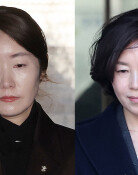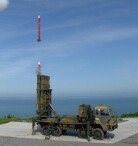Ret. Canadian Vet Remembers Korean War Tour
Ret. Canadian Vet Remembers Korean War Tour
Posted May. 03, 2010 05:39,
○ Gapyeong Battle in April 1951
Bill was staying at his fathers farm near Ottawa, Canada, in 1950, when he heard of the outbreak of the Korean War, and decided to fight. His father and uncle were veterans of the Second World War.
I had a strong antagonism against communism, and I volunteered the following day upon hearing that Russian communists had invaded South Korea, he said.
Bill joined the Princess Patricia`s Canadian Light Infantry and underwent training for deployment at Port-Louis Fortress in the U.S. state of Washington. Upon arrival in Seoul, he was deployed to the battle in Gapyeong, Gyeonggi Province, where allied forces were struggling in the face of human wave tactics by Chinese forces."
With the counterattack by the Chinese Peoples Army, Seoul was on the verge of being reoccupied by communist forces. Canadian and Australian troops were fighting a fierce battle against 6,000 Chinese troops at Gapyeong Valley. Allied troops had been captured by the Chinese for two days April 24-25, and guarded the valley day and night to block enemy forces from entering Seoul.
The bombing continued for 36 hours. We maintained guard only with small rifles, and felt hopeless, Bill said.
After the battle, he demanded to his commander that he receive a Bren light machine gun weighing 18 pounds. This gun needed two people to fire, with one holding the magazine. John Martin, Bills training camp colleague, carried the magazine.
○ Nightmare in Cheorwon Valley
After the Gapyeong battle, Bill was deployed to Cheorwon Valley in Gangwon Province. More than anything, the biggest problem there was the bone-chilling cold. His group barely stayed alive with blankets in a cave, but eventually had to build a bunker.
There was a Korean helper named Kim, who was 18. He received a serving of rice for doing chores at our unit. After I gave him Turkish meat one day, he would call me Turkey, Turkey, and followed my instructions well from the following day, Bill said.
It happened on a day when I was building the bunker. While taking a short rest, Kim brought up a log for a pillar, when I heard a bang. A bomb fell on the site where Kim was standing. He died instantly right there.
It happened three weeks after they began staying together.
It was entirely my fault. I cannot get rid of my sense of guilt. I shouldnt have asked him to do chores. Bill said before taking a pause. I still hear Kims voice. For instance, when I ride a bike and speed up, I hear him talking to me in my ear, Slow down, like an angel.
○ Best friends suicide
Bill returned to Canada in May 1952, 13 months after his deployment to Korea. His life became a mess. He easily lost his temper and would beat people for no reason.
His friends did not know he had fought in the Korean War, and at the time, most Canadians had no idea even where Korea was. Memories of the Korean War remain vivid to Bill to this day, however. He said he cannot forget seeing the bodies of Chinese soldiers scattered in the battlefield.
We would often exchange fire throughout the night with Chinese soldiers, and we often collected bodies the next day as if nothing happened, he said. One day, there were so many bodies that Chinese soldiers just went away even without collecting them. We tried to find the names of deceased Chinese solders at the instruction of our units commander. I would collect pictures of families and girlfriends, love letters and charms. Then Id think to myself that those ruthless Chinese soldiers were also human beings, just like me. Id patrol the battlefield with John, who fired the Bren light machine gun with me in a team of two soldiers.
John joined the Canadian army after returning to Canada, but committed suicide due to depression. His death proved overwhelming to the already reeling Bill.
After graduating from college, Bill joined the military in 1955 and served in peacekeeping forces in Europe, including in France and Germany. He retired as a major in 1985.
At the time of Dong-A Ilbo interview, a memorial altar was set up for the dead crewmen of the South Korean naval patrol ship Cheonan at the Korean Embassy in Ottawa. Bill said, Its so sad. It is so lamentable to see young peoples lives getting cut short. I suspect that the sinking was an act committed by North Korea.







